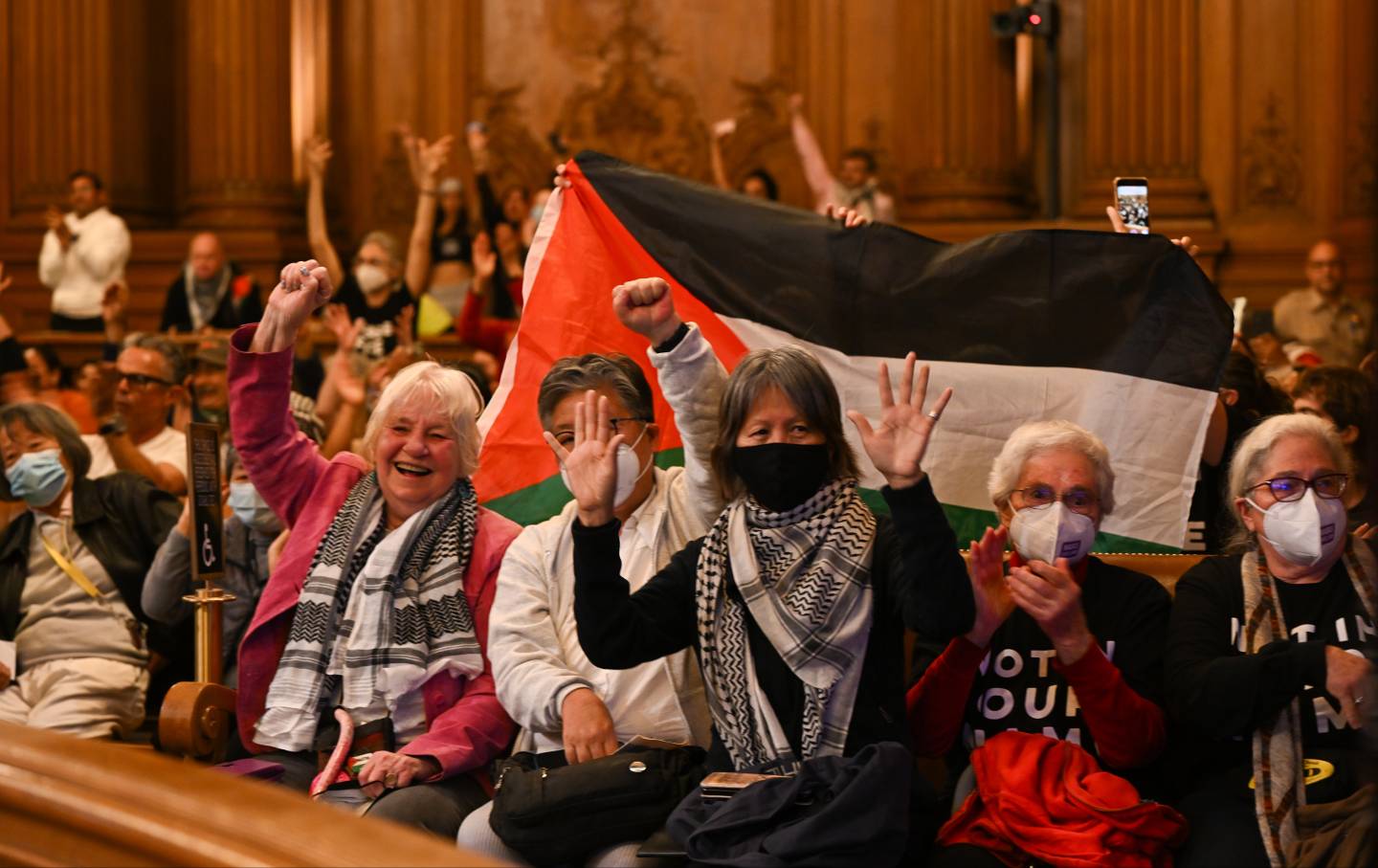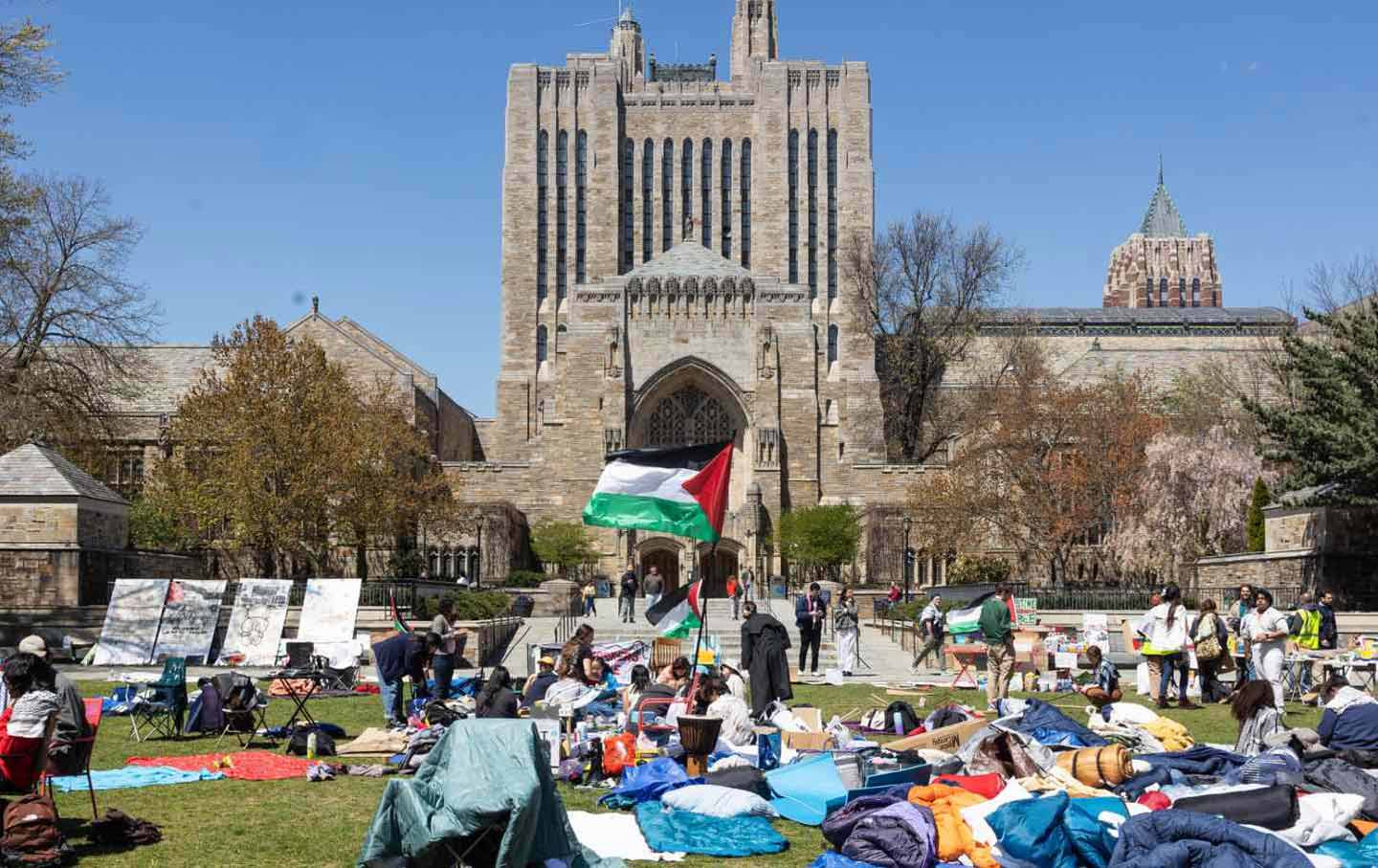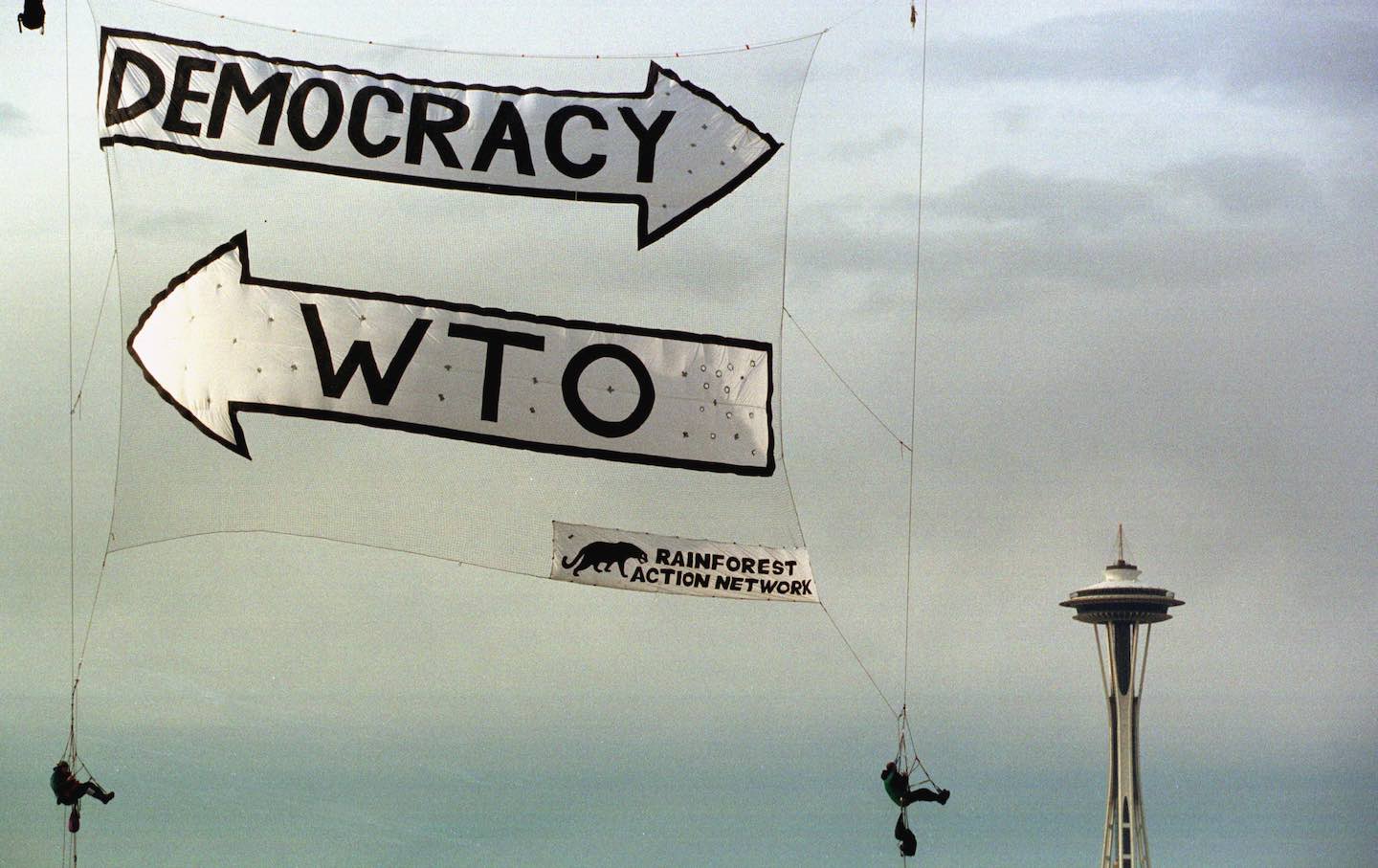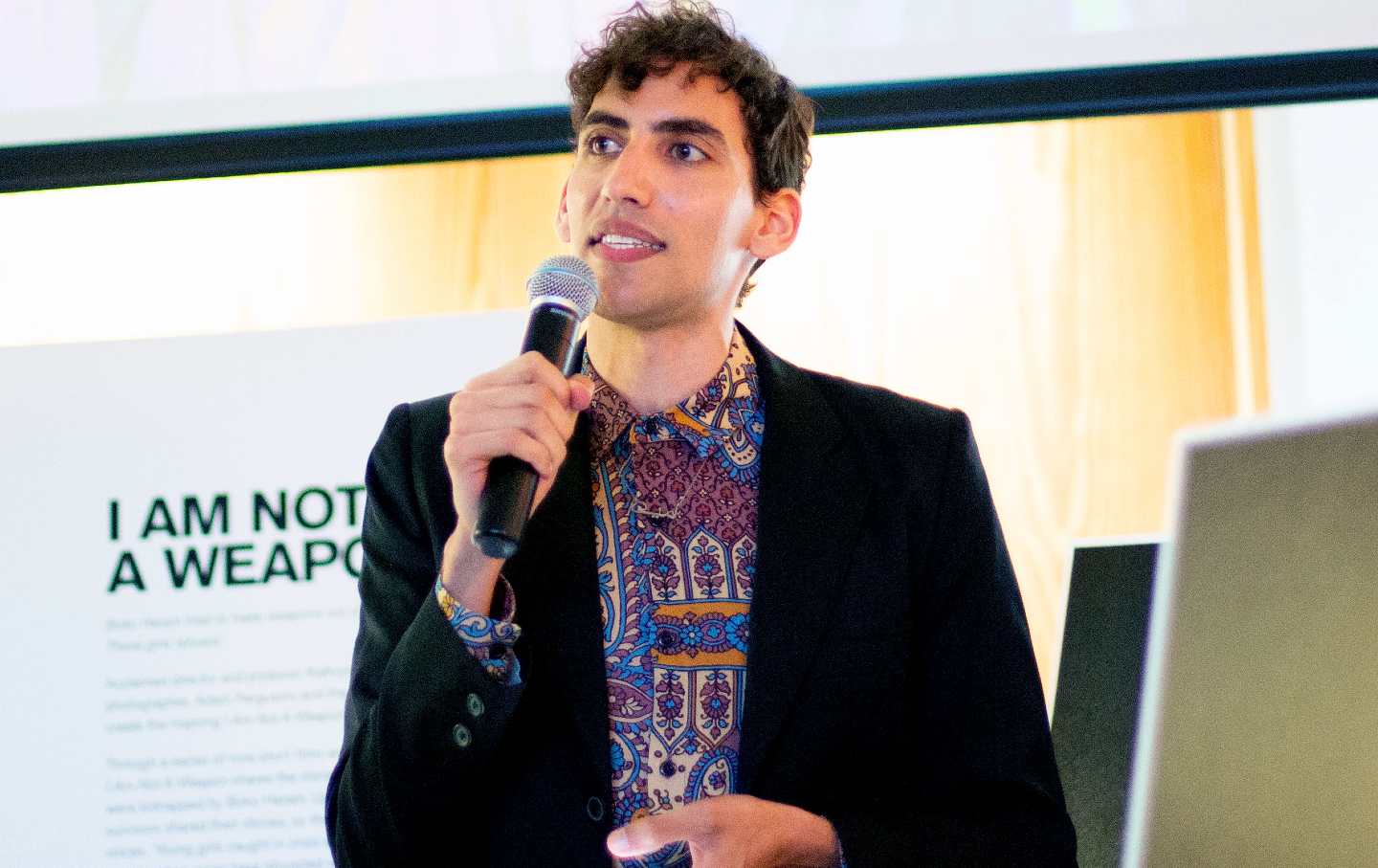100 American Communities Have Called for a Gaza Cease-Fire
Cities, towns, and villages that are home to millions of Americans have demanded that Biden and Congress work to end the killing. And more are doing so every day.

Over 2,000 people pack San Francisco’s City Hall during a hearing on a cease-fire resolution on December 5, 2023.
(Tayfun Coskun / Anadolu via Getty Images)At least 100 American cities, towns, and villages have formally called for a cease-fire in Gaza, amplifying a grassroots demand for the Biden administration and members of Congress to do everything in their power to end an Israeli assault that has left 32,000 Palestinian civilians dead and close to 75,000 injured.
From the city of Chicago, population 2,746,388, to the town of Newfane, Vt., population 1,645, municipal government bodies in more than two dozen states have endorsed cease-fire resolutions, according to a running list being maintained by the Arab American Institute (AAI).
While there has been considerable national media coverage for state-based campaigns to send Biden a pro-cease-fire message by casting “uncommitted” Democratic presidential primary votes—an effort that so far has won almost 500,000 votes and at least 20 Democratic National Convention delegates—the movement to pass cease-fire resolutions in communities across the country has been covered mostly at the local level. But this municipal movement also merits national attention, as it has been strikingly successful.
In addition to Chicago, the site of this summer’s Democratic convention, cease-fire resolutions have been passed in Atlanta, Detroit, Minneapolis, Providence, Seattle, St. Paul, St. Louis, and San Francisco, as well as the Ohio cities of Akron, Dayton, and Toledo. Metropolitan centers, suburbs, and rural communities have signed on, and the numbers are growing on an almost daily basis.
“It’s a very clear message: This must end,” explains James Zogby, the president of the AAI. A veteran member of the Democratic National Committee, a frequent adviser to Democratic administrations and presidential candidates, and a regular contributor to The Nation, Zogby says, “There’s a brewing discontent. Many of these resolutions specifically call on members of Congress to get off the fence and call for a cease-fire. People are saying to their elected leaders in Washington, ‘You aren’t moving, so we will.’ And I would advise members of Congress to listen.”
More than 80 Democratic members of the US House of Representatives have called for a cease-fire, as have a growing number of senators. But the White House and the majority of Congress continue to back Israel, which responded to the October 7 Hamas attack with an assault on Gaza that has caused an increasingly desperate crisis. When the Senate voted in February to allocate $14 million in new military assistance to the Israeli government, as part of an “emergency” military spending bill, only three senators—Democrats Jeff Merkley of Oregon and Peter Welch of Vermont, along with independent Bernie Sanders of Vermont—objected to the blank check.
So the outcry continues to grow from the grass roots of a country where polls show there is broad support for a policy reset with regards to Israel and Palestine. The number of municipal cease-fire resolutions was at 99 on Tuesday, according to the AAI. But, that night, following a long and contentious meeting in Sacramento, where almost 80 people testified, the City Council in California’s capital passed a resolution calling for:
* “an immediate and permanent bilateral ceasefire to urgently end the current violence”
* “the immediate, unconditional release of all Israeli hostages held by Hamas in Gaza”
* “the immediate unconditional release of all Palestinians held without charge or trial in Israeli prisons”
* recognition that “this conflict will not be resolved militarily; rather, it will be resolved diplomatically when wise, courageous and visionary leaders on both sides replace the current leaders in charge today”
* action by the Biden administration “to promptly send and facilitate the entry of unrestricted humanitarian assistance into the Gaza Strip.”
Sacramento Mayor Darrell Steinberg announced that he would bring the resolution before the council, saying, “Making peace is not easy…. In the midst of great mourning, anger, and fear over the war in the Middle East, I’m calling on our community to once again choose hope over continued division.”
Steinberg, who is Jewish and who pushed for the resolution with support from members of Sacramento’s Muslim and progressive Jewish communities, explained, “The resolution contains language important to all sides. It also includes some provisions that each side would write differently if they wrote it themselves. That is the nature of principled compromise. We may not be able to create peace in the Middle East, but we can model what we want to see throughout the world here in our own city.”
The Sacramento resolution’s language is typical of the motions that have been passed around the country, although a number of them also call for ending or placing restrictions upon US military aid to Israel. In addition to the 100 communities where local governments have backed specific cease-fire resolutions, at least seven more have passed resolutions calling for peace negotiations in Gaza, where at least 70 percent of civilian infrastructure has been destroyed, at least 85 percent of the Palestinian enclaves men, women and children have been displaced, and the threat of mass starvation is so severe that the executive director of the World Food Program, Cindy McCain (widow of Arizona Senator John McCain), says, “People in Gaza are starving to death. The speed at which the man-made hunger and malnutrition crisis has ripped through Gaza is terrifying.”
The frustration with US policy regarding Gaza has been seen on the streets and at the ballot box. But the municipal resolutions focus it in a way that members of Congress are particularly likely to note, says Zogby. He pointed to resolutions passed in three cities in New Jersey—Haledon, Paterson, and Prospect Park—that called on US Representative Bill Pascrell to back a cease-fire. Paterson, the third-largest city in New Jersey, is home to one of the largest Palestinian-American communities in the country.
Popular
“swipe left below to view more authors”Swipe →“Pascrell should be echoing the voice of our community that elected him,” said Paterson City Council member Alaa Abdelaziz. The first Palestinian-American elected to the council, Abdelaziz explained, “This call for action isn’t just about politics. It’s about representing the will and values of the families in our city and stopping the unnecessary loss of civilian lives, including women and children.”
Not all members of Congress are responding. But many have. US Representative Betsy McCollum, a Minnesota Democrat, highlighted the St. Paul council’s unanimous pro-cease-fire vote, hailing “our City’s thoughtful leadership” on the issue. And even if Congress and the president are slow to move, Chicago Mayor Brandon Johnson, who cast the tie-breaking vote to make his the largest city in the United States to back a cease-fire resolution, said, “I wish I could give you maybe an answer to what impact it will have on other people who make decisions, but I can say from a very personal note: I know that for Black liberation we had to make statements that maybe not in the immediate [moment] had an impact. But I’m not mayor of the city of Chicago if people weren’t pushing the government to recognize people’s humanity and understand the value of what liberation means for people, groups, and nations. And in this instance, people should be liberated.”








